History
Why do we study history? History helps students develop the skills to look beyond the headlines, to ask questions properly, and to justify their own opinions. History helps to train the mind and teaches students how to think and process information. History encourages students to question preconceptions, evidence and sources. It helps students appreciate that people in the past were not just 'good' or 'bad', but motivated in complex and inconsistent ways. This in turn helps us understand the origins of modern and contemporary political and social problems.
The C group learn historical concepts and processes in line with the British National Curriculum. There are a number of key concepts that underpin the study of history: chronological understanding; cultural, ethnic and religious diversity; change and continuity; cause and consequence; significance; and interpretation. Pupils need to understand these concepts in order to deepen and broaden their knowledge, skills and understanding. Students also need to be able to conduct a historical enquiry, use evidence and communicate their findings about the past effectively.
The chronological approach to learning history throughout the C group helps build up a broader sense of narrative, and the pupils' own sense of where they are in history, how they got here and where they might be going. This method also avoids studying the 'great' historical figures in isolation, but places them in the wider context. Consequently, the C1s study Medieval Britain (& Europe) 1000-1485, the C2s study Early Modern Britain (& World Exploration) 1485-1750; and the C3s study Industrial Britain and the Twentieth Century World 1750-1970s.
The B group then have the choice whether to continue to study history on to GCSE. For GCSE we follow the Edexcel IGCSE, which is made up of four units, studied over two years, concluding with two 1hr 30min external exams in the final term. The topics currently studied at GCSE include; a historical investigation into The Origins and Course of the First World War, 1905-18; continued chronologically by looking at A World Divided: Superpower Relations 1943-72 which is a depth study; then followed by the second depth study on A Divided Union: Civil Rights in the USA, 1945-74; and finally, students review the Changes in Medicine, c1848-c1948 as a breadth study.
The A group can choose to continue their studies by taking A level History. We follow the OCR History A course (H505). During the A1 year students study Unit Y221: Democracy and Dictatorship in Germany 1919-63 and Unit Y113: Britain 1930-1997 (Enquiry Topic: Churchill 1930-51). In the A2 year, in which case students have to complete a 3000-4000 word essay as part of a course work unit, and they will also study Unit 305 The Renaissance, c.1400-c.1600.
Teaching Staff
History is taught by Sarah Howell
Recent Trips
Recent history trip destinations have included:
The Weald & Downland Open Air Museum,
Hampton Court Palace,
London Dungeons,
Imperial War Museum,
Churchill War Cabinet Rooms.

